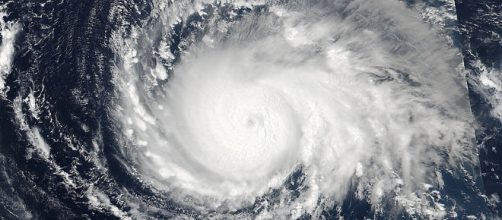With hurricane season in full swing, changes in the environment may go unnoticed. Ask a variety of Floridians and most would probably say that “it is one of the cons to living in such a beautiful area year-round.” True-- the fact is that Florida is used to getting hammered by hurricanes year after year. Although they have spared the last 10 years or so, it does not mean the luck will continue.
Ask the same question to the people of Houston who just got hit by Hurricane Harvey, and most of them would say that they have not experienced anything the size or strength of this storm since living in the area.
Now many in the area are asking the same thing—why?
The issue that occurred with Harvey is that it was a slow-moving storm that produced nearly 10 trillion gallons of rain and dumped it all on Houston. Houston's population has grown at a rapid rate over the last 10 years and is not designed to handle the amount of water that was dumped on it from Harvey.
So does the rising sea water have an effect on the intensity of these storms?
The U.S. Global Change Research Program’s Climate Science Special Report draft from June 28 reports that “human activities have contributed to the observed increase in hurricane activity”. The report also states there is still an uncertainty about how much fossil fuels contribute to the intensity of hurricanes but there does seem to be a connection between the two and the threat is only going to continue to get worse.
With rising seawater and warmer air the primary contributors of fuel for a hurricane, storms will last much longer and produce more damage over land. Harvey is a recent event that demonstrates this scenario. The slow movement of the storm and warm air of Houston fueled the storm far longer than anyone anticipated.
What to expect from Irma
With Irma already tearing up many islands in the Caribbean as a category 5 hurricane, officials in Florida, Georgia and South Caroline are already embracing for the worst. Although Irma is not expected to make landfall as a category 5 storm when it hits the US, the Florida Keys and Miami are extremely vulnerable due to their geographical location and the storm surge the storm will create.
Florida will have to brace for impact with Irma and officials will begin to assess the damage days after the storm. Unfortunately, there is already another named storm churning right behind Irma and if the pattern continues, this could be a hurricane season for the record books.


